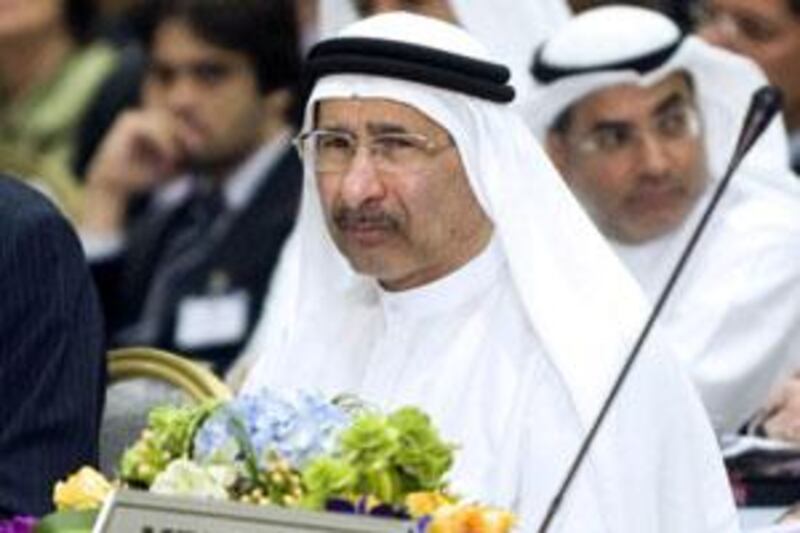The Central Bank has asked banks to limit cash dividend payouts as it seeks to ensure lenders have sufficient capital after the financial crisis. Banks have been told to cap payouts to shareholders at 50 per cent of their net profits from last year, said Saeed Abdullah al Hamiz, the senior executive director of the banking, supervision and examination department of the Central Bank.
"We are asking banks to think twice about dividends," Mr al Hamiz said yesterday. "Every year we tell them to limit but this year we have increased it because of the financial crisis. This will be healthy for the economy and for banks." Many lenders have already announced their boards' proposals for dividends. Under the new regulations, Dubai Islamic Bank would have breached the limit after announcing proposals for a dividend payout of 60 per cent of its profits, analysts said.
Emirates NBD, the country's biggest bank by assets, has proposed a 20 per cent cash dividend, which would mean paying 20 fils a share at a nominal value of Dh1. With about 5 billion shares outstanding, Emirates NBD would be paying out a cash dividend of about Dh1 billion (US$272.2 million). That is about a third of its Dh3.3bn net profit for last year. "They are trying to prevent banks from paying out too heavy dividends" as a proportion of the bank's profit, said Deepak Tolani, an analyst at Al Mal Capital.
Meanwhile, it was revealed yesterday that the UAE would not be included on a list of countries with poor anti-money laundering and terrorist financing regulations, due to be released tomorrow. Financial regulators from 53 countries have been gathering at the Central Bank this week for a conference on how to tighten regulations around financing militants and money laundering. The event will conclude tomorrow with the public release of a list naming countries that have failed to enforce sufficient restrictions.
"I want to confirm as an official that we are not in any list," Abdulrahim al Awadi, the director of the Central Bank's anti-money laundering and suspicious cases unit, said yesterday on the sidelines of the conference, hosted jointly by the inter-governmental group Financial Action Task Force (FATF). Although Mr al Awadi had not seen the list, to be released by FATF, he said the UAE was not on it as the country fully complied with the organisation's 40 recommendations on how to strengthen regulations against the two activities.
The IMF has described robust anti-money laundering regulations as a crucial foundation of the economic and financial stability of nations. Foreign investment flows can be discouraged and international capital flows can be distorted by the two activities, the IMF has warned. In a November 2008 report by FATF, the UAE was heavily criticised for lack of sufficient reporting of suspicious transactions.
The Group of 20 leading and emerging economies in April asked FATF to point out countries that need tighter regulations on militant financing and money laundering. Sources say the list could contain as many as 30 countries. tarnold@thenational.ae uharnischfeger@thenational.ae myoussef@thenational.ae





